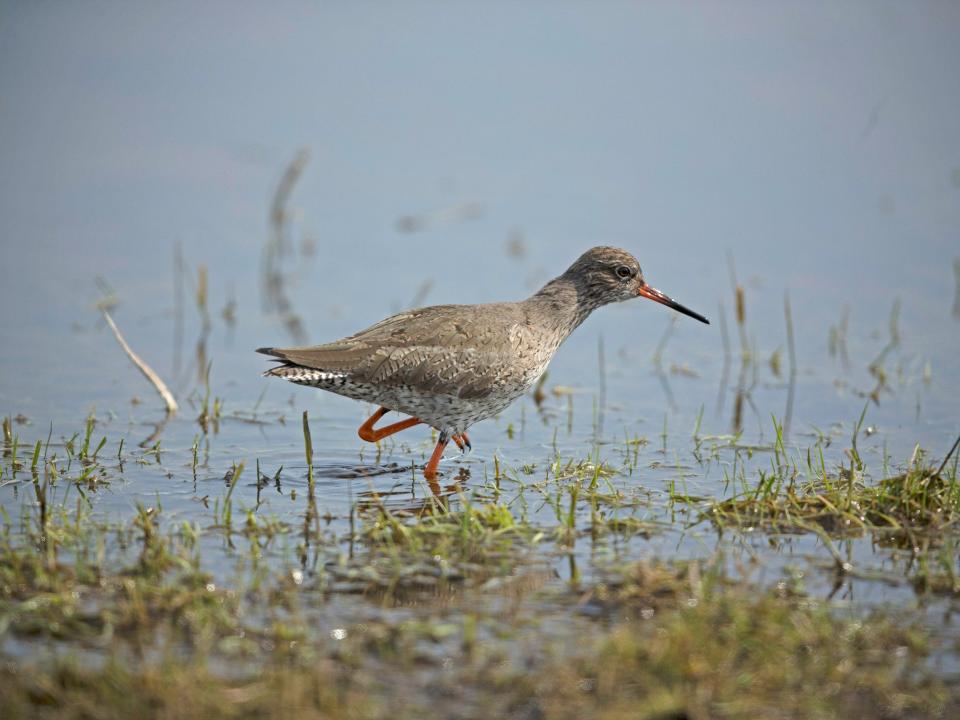How does saving water help combat climate change?

Earlier this week Boris Johnson’s Cop26 spokesperson, Allegra Stratton, came under fire for suggesting that the British public can help tackle the climate crisis through “micro-steps” such as not rinsing dishes before putting them in the dishwasher.
In an article in The Daily Telegraph, she also suggested that consumers might buy shower gel in bar form, packaged in cardboard, and could consider walking rather than driving to the shops.
She acknowledged that “we need to see substantial movement on coal, cars and trees to bring carbon emissions down by 2030, but the “micro-steps” she outlined, were slammed for shifting blame for the climate crisis to the British public.
Twitter users pointed out that just 100 companies around the world are responsible for 71 per cent of emissions and shadow environment secretary Luke Pollard told The Independent: “The planet is on fire and we are living in a climate and ecological emergency
“If the government’s best answer is rinsing dishes, we are in serious trouble.”

But do water-saving measures like not rinsing dishes, cutting down on time in the shower and baths, turning off the tap when you clean your teeth and using a watering can in the garden instead of a sprinkler or a hosepipe help the environment?
Dr Jess Neumann, a lecturer in Environmental Management at the University of Reading, says households have huge role to play.
She said: “Small actions by many people can only have a cumulative positive effect. Saving water by not rinsing plates, taking a short shower instead of a bath, planting more drought-resistant plants that require less water and capturing and reusing rainwater and grey water (waste water from showers and sinks) are all examples of small actions that add up.
“By taking actions to save water at a household level, we help prevent wildlife and biodiversity loss, and support other benefits that wetlands, floodplains and water bodies offer including reducing flood risk, maintaining water supply, soil and sediment regulation, pollution regulation, recreation and cultural value.”
“Less than 3% of earth’s water is freshwater - most of this is contained in ice, glaciers and underground with less than 1% actually available to us. Demand for water is ever-increasing as the population grows and it is extremely important that we all work to conserve water.
“Water and wetlands are vital parts of the natural environment. In the UK they support iconic species including otters, salmon, water voles and kingfishers as well as the "everyday" wildlife we love to see. A total of 90% of wetland habitats have been lost in the last 100 years and around 10% of freshwater and wetland species are threatened with extinction.”
Mark Wright, Director of Science at WWF UK, says that only about one in six of our UK rivers are in good ecological condition and as we extract water from rivers and lakes the concentration of pollutants increases.
He added: “It is also worth flagging that saving water also saves us money – most of us pay water bills linked to our water usage; but it also saves energy. Just think about what is required to filter, heat and pump water to our homes and businesses, then pump wastewater out again and treat it.
“So saving water is also good for our carbon footprint. We have entered a new three-year partnership with Finish to replenish 500 million litres of freshwater in East Anglia and help make the public aware of the link between their water use and the health of their local rivers.”

Government critics point out that nearly three billion litres of water is lost to leaks each day in the UK. Is fixing these a more pressing concern than action at a household level?
Dr Neumann said: “It does not need to be one or the other - leaks do need to be fixed as a huge amount of water is being treated ready for consumption and then being lost before it gets used - essentially this is water that will end up back in the groundwater where there are concerns over possible contamination and damage to infrastructure.
“But this does not detract away from the responsibility that individuals have in reducing water use in their own homes.
“Water is an integral part of the natural environment which functions as an entire ecological, hydrological and geological unit and not as separate components - if we don’t have enough water in the system it has a big knock-on effect in the wider environment and to society.
“Water scarcity is a serious environmental and ecological issue facing the UK, yet evidence suggests that it features as a lower concern for many people when compared with other environmental issues.
“This is likely due to the perception that the UK is a rainy country and clean water is always available to us.”
Read More
Energy bills to soar in biggest increase in a decade
Why is Florida the lightning capital of the US?
Boris Johnson urged to step up efforts to get agreement at climate summit

 Yahoo News
Yahoo News 
